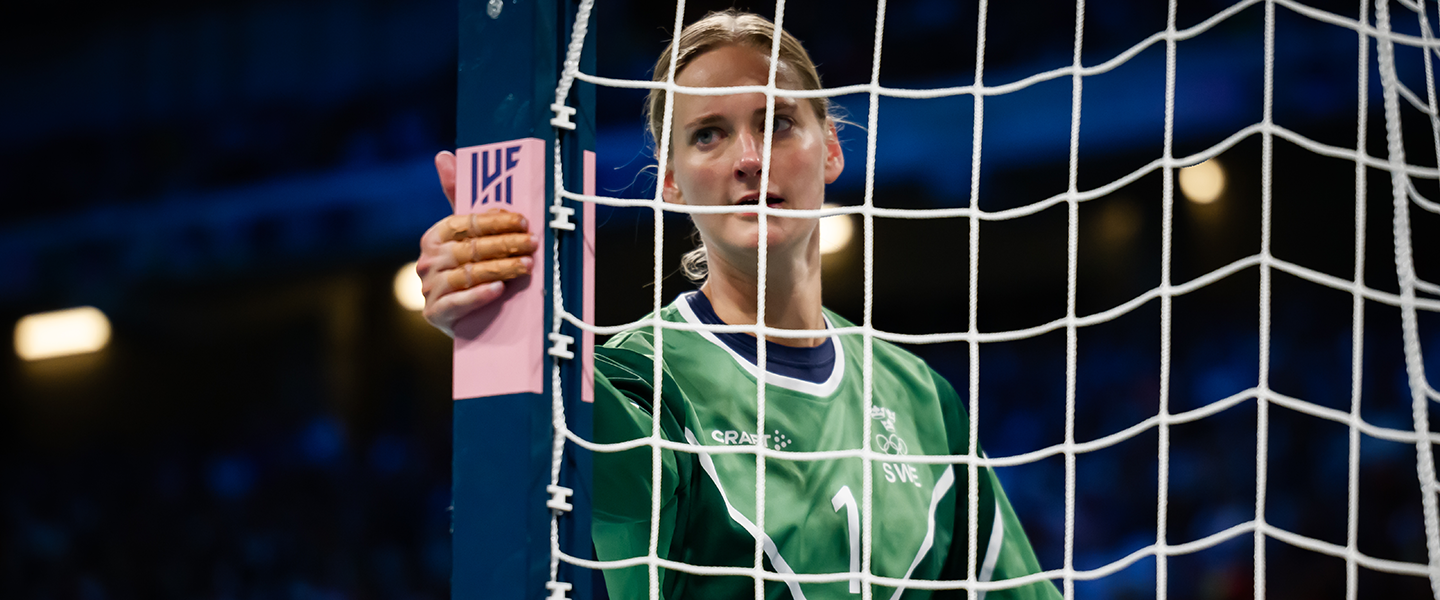News
"Not satisfied" with 22 saves, Bundsen eyes a medal at Paris 2024
06 Aug. 2024

Five seconds stood between Sweden going home and extending their stay in the women’s handball competition at the Paris 2024 Olympic Games. The Scandinavian side, which had previously made it to the semi-finals only once in history, were down one goal and had the last attack of the match in the quarter-final against Hungary.
Then, coach Tomas Axner took goalkeeper Johanna Bundsen out, slotted Nina Koppang in for a seven-on-six attack, with four back players, and the right back scored the goal which tied the score, 29:29, pushing the match into extra-time.
Sweden have been there before and knew how important these matches are. And for the first seven minutes and 50 seconds of the extra-time, they did not concede a goal, scored five and ensured they secured back-to-back semi-finals berths at the Olympic Games, after their previous appearance, at Tokyo 2020.
There have been plenty of crucial moments in the match, from left wing Elin Hansson scoring six goals, as many as right wing Nathalie Hagman and line player Linn Blohm. Koppang finished with seven goals herself. But none were more instrumental than goalkeeper Johanna Bundsen.
Aged 33, Bundsen has played 12 years for Swedish powerhouse IK Sävehof and other five for København Håndbold. She made her debut in the national team in 2009 and won a bronze medal at the EHF EURO 2014. Slowly, but surely, she climbed up the ladder and became the top choice, boasting a 36% saving efficiency at the 2023 IHF Women’s World Championship.
However, at Paris 2024, Bundsen has been fantastic for Sweden. So far, she saved 75 shots in the first six matches, being the third best goalkeeper in the competition, with a 38% saving efficiency. 22 of those saves, including five in the first minutes of the extra-time, came in the match against Hungary, where Bundsen was fantastic.
Yet somehow, she was still not entirely happy with her performance.
“I wasn't that satisfied after the game but when there are 22 saves, I think I should be happy about that and 42% is very good, I need to be happy for that,” says Bundsen.
For such a match, especially when saves were made in key moments, a 42% saving efficiency, in the quarter-finals of the Olympics, is an absolutely fantastic performance. Especially when 13 of those saves were in one-on-one situations, where Hungary could have scored. And in a match decided in small margins, every save counts.
“You know, you always remember the bad moments, the bad stuff or the things you can do better. But, of course, I felt good when, after 60 minutes, we came in with a lot of energy and I feel that I have a lot of saves there, in extra-time. Of course, I'm happy about that,” adds Bundsen.
Goalkeepers are crucial to a team’s success and Bundsen will need to repeat those amazing outings in her first six matches at Paris 2024 in the semi-final against France, scheduled for Thursday, a do-or-die match for both teams.
She also had to play without her contact lenses during the match against Hungary, after one of them has been knocked off by accident by teammate Tyra Axner before the match. Yet she shrugged everything off, putting up a clinical performance. This will surely not be the case against France.
But Sweden have a mantra of also-rans, having always been close, but no cigar, in the last major international competitions. At the Tokyo 2020 Olympic Games, they finished fourth, with losses in the semi-final against France and against Norway in the bronze medal match. Both rivals are still in with a chance at Paris 2024.
The Scandinavian side also finished fourth at the 2023 IHF Women’s World Championship, losing the semi-final against France and the bronze medal match against Denmark. Once again, both of those teams are in the final four in Paris.
“Yeah, we have played a lot of semifinals now and it's going to be a tough game. France are a really good team and this competition is played in France as well, so it's going to be tough for us. But yeah, let's hope we can do something good about this,” concludes Bundsen.

